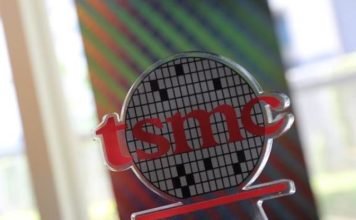 Sravan Kundojjala and Stuart Robinson of Strategy Analytics in a blog post analyzed Broadcom’s $130 billion offer to buy bigger rival Qualcomm.
Sravan Kundojjala and Stuart Robinson of Strategy Analytics in a blog post analyzed Broadcom’s $130 billion offer to buy bigger rival Qualcomm.
Strategy Analytics says that Qualcomm should reject the $130 billion unsolicited takeover offer from small rival Broadcom.
Why it does not make sense
Firstly, Qualcomm has a strong track record of execution. The global semiconductor company did not expect Qualcomm to become an acquisition target to a relatively smaller company.
Secondly, Broadcom’s opportunistic offer looks like it acquiring a distressed company. Qualcomm’s ongoing legal battles with device maker Apple and regulatory bodies in various geographies and its slow-moving NXP acquisition process made Qualcomm look vulnerable.
Qualcomm is not vulnerable as the US-based company’s chip unit (QCT) has been performing well since Qualcomm’s strategic review on whether to split the chip unit and the licensing unit in 2015. QCT’s margins recovered well. Qualcomm is targeting QCT EBT margin of 18-20 percent against QTL EBT margin of 68-72 percent in the first quarter of fiscal 2018.
Qualcomm is expecting a 1-3 percent decrease in revenue in the first quarter of fiscal 2018 primarily due to its ongoing tussle with Apple.
Qualcomm said it’s leading the industry to 5G, and is well positioned with product and technology leadership to continue expansion into many exciting new product categories, such as automotive, mobile computing, networking and the Internet of Things.
Qualcomm announced its intention to acquire NXP for $38 billion to add presence in security, IoT and automotive markets. Qualcomm needs to ensure more competition with Intel to move ahead in the semiconductor industry and reduce dependence on phone business.
This is on top of Qualcomm’s safe and secure baseband modem leadership and its pioneering 5G efforts. QCT’s efforts to capture more value per smartphone with its broad portfolio (modem, apps processor, connectivity, RF 360 JV, sensors, etc.) have also started showing fruitful results.
Finally, a deal of this size will face intense scrutiny from regulators around the world, especially as Qualcomm is involved. The combined company will have an enviable share in smartphone chips including modem, processor, connectivity and RF. Some telecom industry experts believe that Qualcomm has started paying penalty for misusing its dominance.
Attract anti-trust organizations may demand concessions including product divestitures, conditions on pricing and completive-friendly measures to approve the Qualcomm-Broadcom deal.
Avago closed Broadcom’s acquisition in 8 months and is expecting any Qualcomm deal will close in 12 months. This is an aggressive target. Qualcomm’s in-progress acquisition of NXP has already taken more than 12 months and Qualcomm is still waiting to get approvals from China and the EU. Qualcomm has already made concessions to the EU to accelerate the NXP deal process.
Broadcom’s offer clearly undervalues Qualcomm as a company. Once the NXP acquisition closes, Qualcomm’s chip unit could function more independently from QCT, the licensing arm with its increased non-smartphone revenue and profit streams.
At the moment the success of Qualcomm’s chip unit is largely tied to its licensing unit, whose profits fund the chip unit’s R&D. In light of the licensing unit’s challenges and the chip unit’s need to expand beyond smartphones, Qualcomm is pressured to be less dependent on this interlinked business model.
What does Broadcom want from Qualcomm?
Broadcom wants Qualcomm’s modem leadership to complete the wireless picture. Avago acquired Broadcom one year after Broadcom’s exit from the baseband market and the company did not inherit modem products. At this point, only Qualcomm’s modems make sense as Intel, MediaTek and Spreadtrum are behind in terms of product strength.
HiSilicon and Samsung LSI are vertically integrated and Broadcom cannot acquire them. Qualcomm’s success in 5G is all but assured at this point, thanks to its first-mover advantage.
Broadcom can develop a 5G baseband on its own? It will take a huge R&D budget and multiple years to get customer acceptance and Broadcom’s lack of experience in 4G basebands complicates the process as backward compatibility is a key requirement for network operators.
Broadcom only wants Qualcomm’s chip assets, to be more specific. This casts doubt on Broadcom’s commitment to Qualcomm’s licensing unit too. All in all, Broadcom’s announcement raises more questions than it answers.
Qualcomm will find a way to rest all its battles with Apple outside the courts. The NXP acquisition should be closed with another 2-3 months. 5G will kick start in 2019, increasing Qualcomm’s opportunity.
Once the acquisition of NXP closes, Qualcomm’s chip unit will be less dependent on Apple and Samsung and will participate more aggressively in growth markets.
Broadcom and Qualcomm do not have much product overlap (except for RF filters, connectivity chips, and some networking products) and make a good match on paper.
Broadcom’s presence in data-center and Qualcomm’s data-center ambitions also match well. But Broadcom needs Qualcomm more than Qualcomm needs Broadcom.
If Qualcomm agrees for the Broadcom deal this will increase Qualcomm’s dependence on the smartphone market rather than reduce it.





